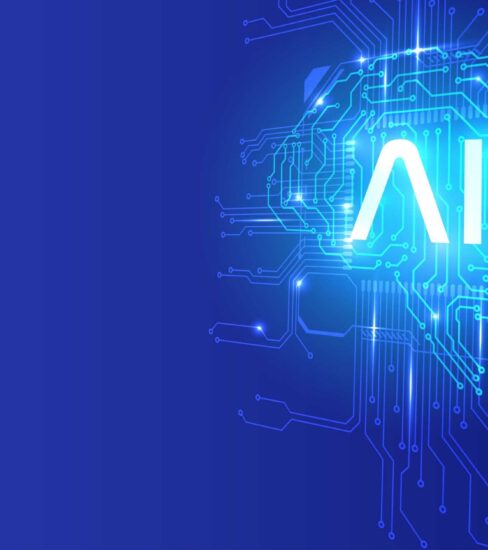ERP systems are the nerve center of any modern business operation's processes, integrating various functions like finance, HR, logistics, and CRM. However, this often results in a complex environment, where without the right level of synchronization, multiple processes might interact discordantly and hinder operational efficiency. Multiple complex processes often lead businesses to search for ways to streamline operations and decision-making and improve performance. The challenge is significant, but so is the promise of a solution - a harmony of processes enabled by an innovative conductor: AI. Introducing AI into ERP is not just an upgrade; it's a game-changer.
AI is the new Maestro of the ERP orchestra.
The more complex an ERP system becomes, the more an element of control and coordination becomes imperative. With machine learning, language processing, and predictive analytics, AI is the Maestro of an orchestra that can ensure each AI ERP function works harmoniously with the others to produce a harmonious performance.
AI harmonizes the disparate ERP components and orchestrates performance that optimizes productivity and efficiency. Machine learning algorithms, for example, can sift through mounds of data, learning from patterns, predicting future trends, and providing valuable insights that help optimize inventory management, enhance customer service, or aid in financial planning. AI can take on repetitive tasks and automate routine processes, freeing up resources to focus on more strategic, value-added tasks.
Real-World Rhythms: AI and ERP Integration scenarios.
As theory meets practice, organizations are discovering how AI features within ERP systems can unlock enhanced efficiency and automation and facilitate strategic decision-making.
Improved Supply Chain Management
Managing the supply chain in a large-scale manufacturing enterprise can often involve complex, error-prone tasks like demand forecasting and inventory management. ERP systems that foster advanced AI features help businesses leverage machine learning and predictive analytics to accurately anticipate demand based on documented trends and market factors. AI can also monitor real-time inventory data to recommend adjustments, ensuring optimal stock levels and minimizing warehousing costs.
Enhanced Financial Management
AI-based ERP can transform financial services firms or finance departments within organizations by automating routine tasks like invoice processing, expense management, and financial reporting, reducing the likelihood of manual errors. More notably, AI's predictive analytics capabilities can forecast future financial trends based on historical data, enabling proactive budgeting and strategic financial decision-making.
Streamlined Human Resource Management
It's no secret that the workforce is a business's primary resource and, by proxy, one of the main expenses. AI can play a big part in streamlining human resource management. Automating routine tasks such as leave management, payroll processing, and benefits administration can free HR professionals to focus on strategic activities like talent development and succession planning. Furthermore, AI's data analysis capabilities can assist in talent acquisition by evaluating candidate profiles and matching them against job requirements. AI can also analyze employee performance data to identify skill gaps and training needs, helping businesses develop their teams more effectively.
Better Customer Relations Management
An AI based ERP customer relationship management (CRM) module can significantly improve customer service and engagement. AI-powered chatbots can handle routine customer queries around the clock, enabling faster response times and ensuring higher customer satisfaction. Predictive analytics can also help businesses anticipate customer needs and personalize their offerings, fostering customer loyalty.
The Benefits of AI Integration in ERP Systems.
AI features transform legacy ERP systems into intelligent, agile, and proactive tools, that deliver:
Enhanced Operational Efficiency
Integrated AI in ERP systems helps streamline and automate various tasks to improve operational efficiency. By leveraging machine learning algorithms, AI can analyze vast amounts of data, identify patterns, and optimize processes. For example, AI-driven demand forecasting algorithms can anticipate customer needs accurately, enabling organizations to optimize inventory levels and avoid costly stockouts or excess inventory.
Proactive Decision-Making
ERP AI empowers organizations to make data-driven decisions in real-time. By analyzing historical data and external factors, AI algorithms can generate predictive insights, helping businesses identify trends, anticipate market changes, and make proactive decisions. For instance, AI-powered predictive maintenance in ERP systems can predict equipment failures, enabling timely care and minimizing downtime.
Improved Customer Experience
AI in ERP systems enables businesses to provide personalized and exceptional customer experiences. With AI-powered analytics, companies can gain deeper insights into customer preferences, behavior, and purchasing patterns. This data can be utilized to tailor marketing campaigns, recommend personalized products or services, and provide proactive customer support through chatbots or virtual assistants.
Enhanced Supply Chain Management
Integrating AI into ERP systems revolutionizes supply chain management. AI algorithms can optimize inventory levels, track real-time shipments, and anticipate potential disruptions. For example, AI-powered algorithms can analyze weather patterns and historical data to predict delivery delays caused by natural disasters, enabling businesses to reroute shipments and minimize the impact on customer satisfaction.
Automation of Routine and Recurring Tasks
ERP with AI integration automates routine tasks within ERP systems, freeing resources to focus on higher-value strategic activities. For instance, AI can automate data entry, invoice processing, and payroll management, reducing manual errors, improving efficiency, and allowing employees to engage in more critical tasks like analysis, innovation, and customer engagement.
Fraud Detection and Risk Mitigation
AI integration enhances ERP systems' security and risk management capabilities. AI algorithms can continuously monitor data, identify anomalies, and detect potential fraud or cybersecurity threats. By proactively identifying and mitigating risks, organizations can protect their assets and sensitive data and maintain compliance with regulations.
How Do AI-Driven ERP Systems Shape the Future of Business?
Integration of AI with IoT and Predictive Analytics
The fusion of AI technology with the Internet of Things (IoT) and predictive analytics opens up new business horizons. By harnessing AI's ability to analyze vast amounts of real-time data generated by interconnected devices, organizations can gain valuable insights and make proactive decisions. This integration allows for dynamic optimization of processes, efficient resource allocation, and predictive maintenance, leading to enhanced productivity, reduced costs, and improved customer experiences.
Driving Digital Transformation
By automating mundane and repetitive tasks, AI liberates human resources to focus on strategic activities that require creativity, critical thinking, and innovation. This transformative shift allows businesses to stay agile in an increasingly competitive landscape, adapt quickly to market changes, and deliver innovative products and services to meet evolving customer demands.
End-to-End Process Automation
AI's ability to automate end-to-end processes within ERP systems, from procurement and inventory management to order processing and fulfillment, streamlines workflows, reduces errors and speeds up cycle times. This automation also enables organizations to optimize resources, improve customer satisfaction through faster order fulfillment, and drive cost savings by eliminating manual intervention.
Augmented Strategic Planning
By analyzing vast amounts of data and uncovering hidden patterns, AI algorithms provide valuable insights into market trends, customer preferences, and business performance. These insights enable organizations to make informed decisions, anticipate market shifts, identify growth opportunities, and optimize resources to stay ahead of the competition.
AI's transformative capabilities allow organizations to rapidly adapt to evolving market dynamics, foster a culture of innovation, and deliver exceptional customer experiences. The future of business management lies in the harmonious interplay between AI capabilities and their capability to significantly streamline complex ERP processes, empowering organizations to navigate vast amounts of data, drive growth, and readily embrace changes in the ERP and AI landscape.


